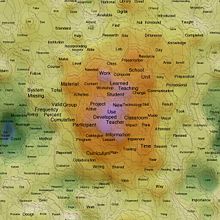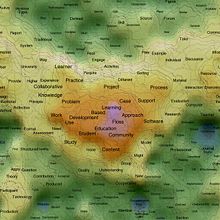Difference between revisions of "Education Team/Evaluation Studies"
Jump to navigation
Jump to search


| (3 intermediate revisions by 3 users not shown) | |||
| Line 1: | Line 1: | ||
| − | + | __TOC__ | |
| − | |||
| − | |||
| − | |||
| − | |||
| − | |||
| − | |||
| − | |||
| − | |||
== Career Connections to Teaching with Technology == | == Career Connections to Teaching with Technology == | ||
| Line 23: | Line 15: | ||
:''"The objectives of this 2nd report of the FLOSSCom project are as follows: To analyze and evaluate the differences between Free / Libre Open Source Software (FLOSS) communities as informal learning environments and on the other side formal educational settings. Point out ways on transferring those FLOSS principles to formal educational settings. Look at existing examples of eLearning delivery and examine why these do not provide the types of constructivist learning environments observed in FLOSS communities. Provide examples of formal educational environments similar to FLOSS communities that would be further addressed at the FLOSSCom Phase 3 FLOSS-like education transfer report."'' | :''"The objectives of this 2nd report of the FLOSSCom project are as follows: To analyze and evaluate the differences between Free / Libre Open Source Software (FLOSS) communities as informal learning environments and on the other side formal educational settings. Point out ways on transferring those FLOSS principles to formal educational settings. Look at existing examples of eLearning delivery and examine why these do not provide the types of constructivist learning environments observed in FLOSS communities. Provide examples of formal educational environments similar to FLOSS communities that would be further addressed at the FLOSSCom Phase 3 FLOSS-like education transfer report."'' | ||
<br clear="all"/> | <br clear="all"/> | ||
| + | |||
| + | ==Other references== | ||
| + | * [[OLPC:OLPC research]] | ||
| + | * [[OLPC:Experience]] | ||
| + | * [[OLPC:Category:Field Reports]] | ||
Latest revision as of 16:41, 19 March 2010
Career Connections to Teaching with Technology

Career Connections to Teaching with Technology SOM from text.
Evaluation of a 6-year program funded by USDOE National Challenge Grant for Technology Program in Education
The Effectiveness of a FLOSS-like Learning Community in Formal Educational Settings

Effectiveness of a FLOSS-like Learning Community in Formal Educational Settings SOM from report text.
February 2008, The Effectiveness of a FLOSS-like Learning Community in Formal Educational Settings (PDF)
- "The objectives of this 2nd report of the FLOSSCom project are as follows: To analyze and evaluate the differences between Free / Libre Open Source Software (FLOSS) communities as informal learning environments and on the other side formal educational settings. Point out ways on transferring those FLOSS principles to formal educational settings. Look at existing examples of eLearning delivery and examine why these do not provide the types of constructivist learning environments observed in FLOSS communities. Provide examples of formal educational environments similar to FLOSS communities that would be further addressed at the FLOSSCom Phase 3 FLOSS-like education transfer report."